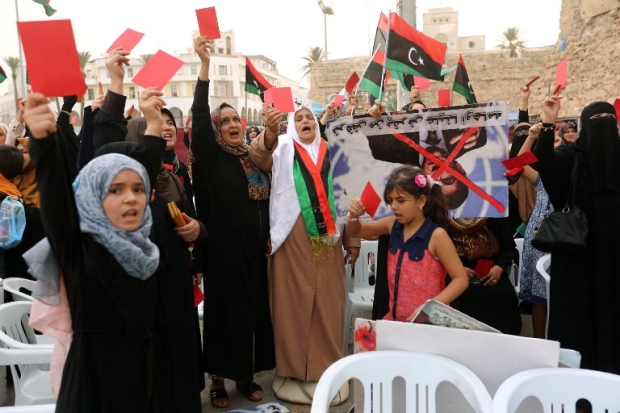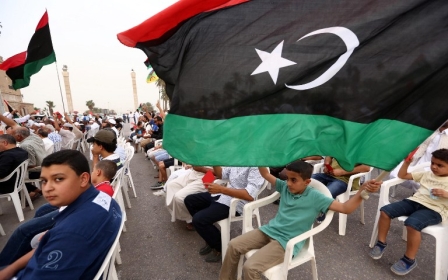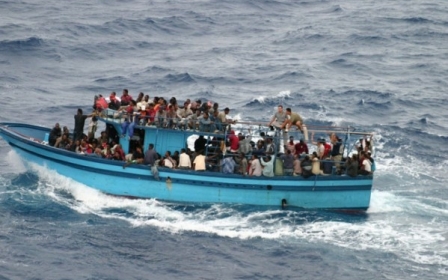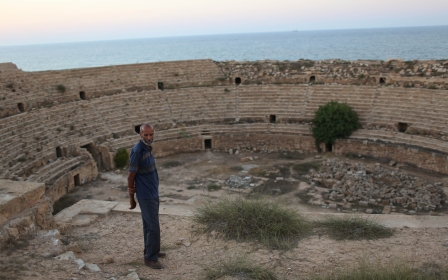Libya's UN-backed government is an utter farce
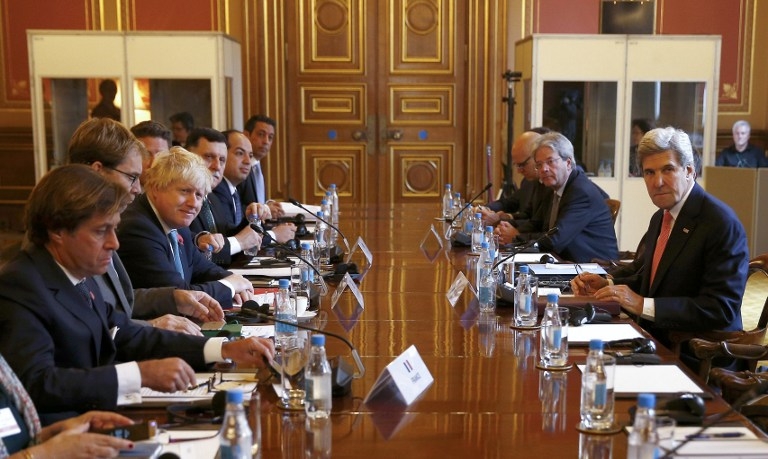
Karl Marx noted that history repeats itself, the first time as tragedy and the second time as farce. This famous observation perfectly describes the West’s recent interventions in Libya.
It is five years since the Anglo-French decision to remove Muammar Gaddafi led to political collapse and then the emergence of an ungoverned space dominated by militias. That was tragedy.
Sarraj is a decent man who was dragooned into the job by the US. However, he has no political background
At the end of last year, the British and French intervened again. Acting through the United Nations, we played a role in removing Libya's democratically elected government, led by Abdullah al-Thani.
The hapless Al-Thani was duly sidelined and a new prime minister based in Tripoli, Fayez al-Sarraj, was installed as the appointed leader of the Government of National Accord (GNA). Unfortunately, it is this intervention which has ended up with farce.
Sarraj is a decent man who was dragooned into the job by the US. However, he has no political background. He rarely, so far as I can discern, travels to the east of Libya in his capacity as prime minister.
His writ does not extend any further than the tightly guarded naval base in Tripoli where (wisely) he prefers to stay when he visits the country he supposedly governs. As a general rule, he (even more wisely) prefers to conduct meetings outside Libya, more often than not in Tunis.
Legitimacy deficit
Sarraj should not be blamed for avoiding his native Libya, parts of which are insanely dangerous. Some of the Libyan militias seek to obtain an element of international legitimacy by officially recognising the GNA, but in practice, they ignore it anyway. Other militias don’t care at all.
Sarraj would not survive if he attempted to assert the authority of the GNA. After all he controls no military or police forces. I understand that he has told confidantes that he longs to stand down, but that the Americans won’t let him.
It is not just the militias which treat Sarraj and his Government of National Accord with contempt. The sad truth is that nobody who matters in Libya takes the GNA seriously. The Central Bank is in continual dispute with Sarraj. So is the National Oil Company.
This court is respected (last year it ruled against the Misrata militia even though they controlled most of Tripoli) and has shown that it is prepared to take independent decisions based strictly on the Libyan constitution.
British doubles
Meanwhile, it is important to remember that despite its official pronouncements, even the British government – for all its statements of support – is playing a double game.
In recent months, British special forces have reportedly been fighting on the same side as the GNA against IS in Sirte.
Meanwhile, as Middle East Eye revealed, British special forces have also based themselves in a French-led multinational
Haftar is on the opposite side to the GNA government in Tripoli.
British forces are on both sides at once as the GNA attempts to assert control over Libya. This reflects a shambolic British policy lacking integrity, strategy or coherence.
In fact, the GNA is mostly a fiction, even though Britain and America continue to pretend that it is real. This became obvious when the British Foreign Secretary Boris Johnson hosted a meeting for Sarraj (as the prime minister-designate of the GNA) with John Kerry and others this week to address the mounting economic crisis in Libya.
Johnson proposed the creation of a new body called the Higher Investment Council. He suggested that it would rank above all the institutions of Libya - i.e. the National Oil Company, the Libyan Investment Authority and the Central Bank.
This attempt to award the GNA sovereignty over the country's finances was rejected by everyone present except the US, Italy, UK and Sarraj himself.
Time to start again?
The event was a farce because it was based around the assumption that the GNA possesses an authority which it lacks.
It is impossible to avoid the conclusion that GNA and Sarraj are now the hostage of Tripoli militias, and Libya needs to start again
On Friday, the International Crisis Group produced a well-informed report into the Libyan calamity, The Libyan Political Agreement: Time for a Reset.
It recalls the high hopes with which the UN set out to rebuild Libya ahead of the creation of the GNA 12 months ago: "A legitimate, sovereign government could restart oil production and export, restart the economy, begin demobilising and reintegrating armed groups and call on the international community to root the Islamic State out of Sirte."
This beautifully researched document is replete with distressing details about the failure of the Sarraj government, revealing for example that no cabinet meeting has taken place since last June.
It quotes one foreign observer: "We had very low expections to start but we see that the council is not undertaking even minimal actions."
It is impossible to avoid the conclusion that GNA and Sarraj are now the hostage of Tripoli militias, and Libya needs to start again. The early departure of foreign forces would be a good start.
- Peter Oborne was named freelancer of the year 2016 by the Online Media Awards for an article he wrote for Middle East Eye. He was British Press Awards Columnist of the Year 2013. He resigned as chief political columnist of the Daily Telegraph in 2015.
The views expressed in this article belong to the author and do not necessarily reflect the editorial policy of Middle East Eye.
Photo: US Secretary of State John Kerry (R) attends the Libyan Ministerial meeting with Britain's Foreign Secretary Boris Johnson (3L), French Foreign Ministry's political director Nicolas de Riviere (L), Italian Foreign Minister Paolo Gentiloni (2R), Libya's Prime Minister Fayez al-Sarraj (5L) and Libya's Deputy Prime Minister Ahmed Maiteeq (6L) at the Foreign and Commonwealth Office in London on 31 October 2016 (AFP).
This article is available in French on Middle East Eye French edition.
Middle East Eye propose une couverture et une analyse indépendantes et incomparables du Moyen-Orient, de l’Afrique du Nord et d’autres régions du monde. Pour en savoir plus sur la reprise de ce contenu et les frais qui s’appliquent, veuillez remplir ce formulaire [en anglais]. Pour en savoir plus sur MEE, cliquez ici [en anglais].



